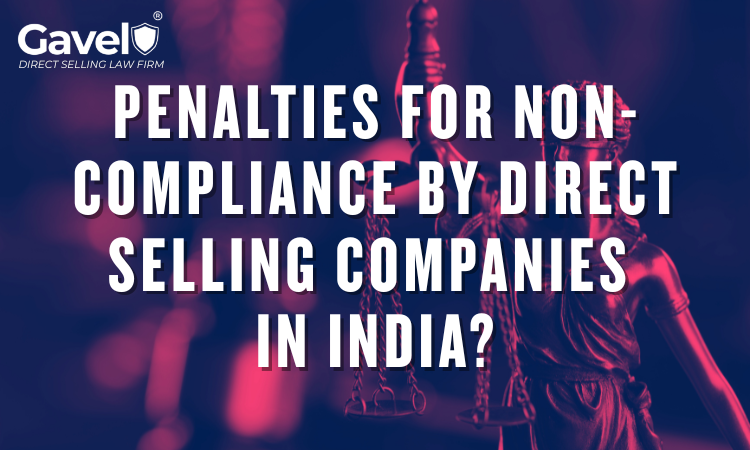Direct selling MLM has emerged as a powerful retail model in India, offering flexible income opportunities and a vast range of consumer products. However, with the rising popularity of the direct selling MLM industry, regulatory oversight has also increased to protect consumers and ensure fair business practices.
Non-compliance by Indian direct selling mlm companies with the applicable Indian laws for Direct selling mlm Industry, particularly the Consumer Protection (Direct Selling) Rules, 2021, can lead to serious consequences. This article explains the key penalties and legal risks faced by companies that fail to comply with the Direct Selling rules.
Understanding Direct Selling mlm Compliance
The Consumer Protection (Direct Selling) Rules, 2021, notified by the Ministry of Consumer Affairs, outline clear obligations for both Direct Selling MLM Entities (companies) and Direct Sellers. These rules aim to curb fraudulent practices, protect consumer rights, and promote transparency in the Direct Selling MLM industry.
Key Compliance Requirements for Direct Selling MLM Companies:
- Mandatory registration with the Department of Consumer Affairs
- Proper Grievance Redressal Mechanism
- Clear Return and Refund Policy
- Disclosure of Product Information, Compensation Plan, and Terms & Conditions
- Prohibition of Pyramid Schemes and Money Circulation Schemes
Adherence to the Code of Conduct for Direct Sellers
Penalties for Non-Compliance
Non-compliance with the Direct Selling Rules can attract penalties under the Consumer Protection Act, 2019, as well as actions from state governments under various local enforcement mechanisms.
1. Monetary Penalties
Regulators can impose heavy fines on companies violating the Direct Selling Rules. These may include:
- Compensation to consumers for unfair trade practices
- Financial penalties under orders passed by the District, State, or National Consumer Disputes Redressal Commissions
2. Legal Action and Prosecution
If a direct selling mlm company is found to be:
- Operating a pyramid scheme
- Engaged in a money circulation scheme
- Misleading consumers through false advertising
it may be prosecuted under: - The Prize Chits and Money Circulation Schemes (Banning) Act, 1978
- Section 420 (cheating) and other relevant sections of the Indian Penal Code
Such offenses may result in imprisonment and criminal charges against company officials.
3. Blacklist and Deregistration
The Central or State Governments may:
- Blacklist the company from operating in their jurisdiction
- Cancel the registration of the company for repeated violations
4. Seizure of Products or Freezing of Bank Accounts
In extreme cases, law enforcement agencies may:
- Seize goods
- Freeze bank accounts
- linked to non-compliant business operations
State-Level Enforcement
Several Indian states, such as Andhra Pradesh, Tamil Nadu, and Kerala, have issued their own State Guidelines or mechanisms to monitor direct selling activities. Non-compliance with state-level requirements can lead to:
- Show cause notices
- FIRs
Sealing of company premises
Why Compliance Is Crucial Non-compliance doesn’t just bring legal penalties — it damages brand reputation, causes loss of consumer trust, and can ultimately lead to business shutdown. For any company in the direct selling space, legal compliance is not optional; it’s a necessity.
Partnering with a legal expert like Gavel Direct Selling Consultant can help ensure full compliance with the latest Direct Selling Rules, avoid penalties, and build a sustainable, compliant business in India’s growing direct selling market.
Contact us – 7011520061

